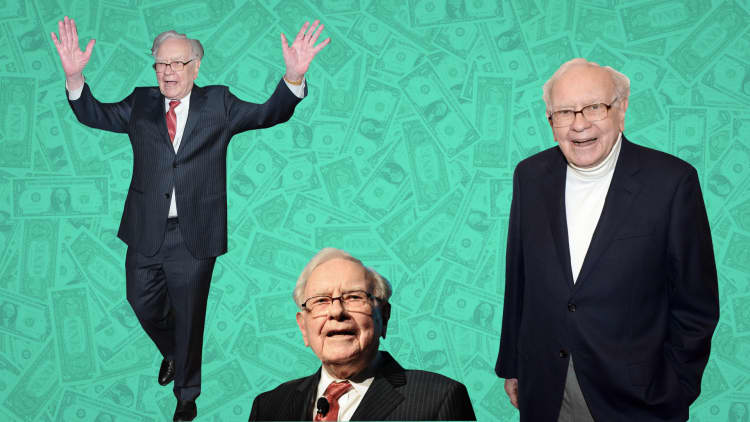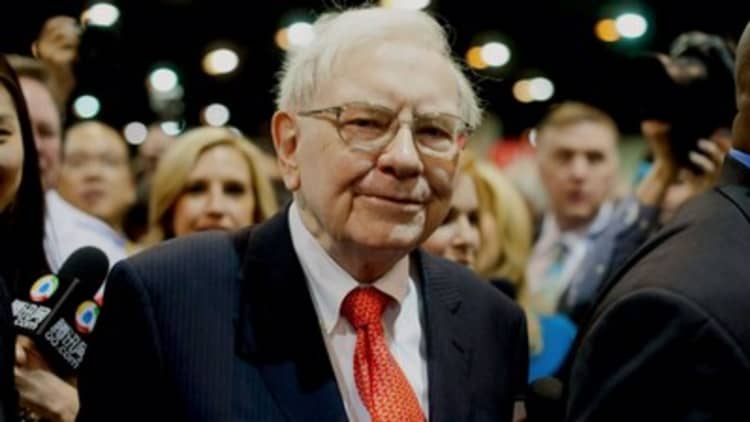At 88, Berkshire Hathaway chairman and CEO Warren Buffett is worth around $84.2 billion, according to Forbes. Nicknamed the "Oracle of Omaha" thanks to his Midas touch within the stock market, Buffett's tenure as an investor started almost eight decades ago.
"The year was 1942, I was 11, and I went all in, investing $114.75 I had begun accumulating at age 6," Buffett wrote in his annual letter to shareholders, published on Saturday. "What I bought was three shares of Cities Service preferred stock. I had become a capitalist, and it felt good."
Cities Service was a natural gas company founded in 1910, but no longer exists. Buffett calculated what his $114.75 would be worth today had he invested the money in a no-fee S&P 500 index fund with all of its dividends reinvested instead. (It's important to note that the first index fund was not available until 1975.)
Based on that, his stake would have been worth (pre-tax) $606,811 on Jan. 31, 2019, Buffett wrote in his letter.
"That is a gain of 5,288 for one. Meanwhile, a $1 million investment by a tax-free institution of that time — say, a pension fund or college endowment — would have grown to about $5.3 billion," Buffett added.

Had a pre-teen Buffett been frightened off by impending government debt (which earlier this year in February passed $22 trillion for the first time), and instead opted to invest his $114.75 in gold in 1942, it would be worth drastically less today.
"To 'protect' yourself, you might have eschewed stocks and opted instead to buy 3 1⁄4 ounces of gold with your $114.75. And what would that supposed protection have delivered? You would now have an asset worth about $4,200, less than 1% of what would have been realized from a simple unmanaged investment in American business. The magical metal was no match for the American mettle," Buffett wrote.
The point of the calculations were to demonstrate the long-term growth of the American economy. All companies which have grown in the United States owe some of their success to being part of a growing economy, he argues. So, too, with Berkshire Hathaway.
"Charlie [Munger] and I happily acknowledge that much of Berkshire's success has simply been a product of what I think should be called The American Tailwind. It is beyond arrogance for American businesses or individuals to boast that they have 'done it alone,'" Buffett wrote. "Over the next 77 years, however, the major source of our gains will almost certainly be provided by The American Tailwind. We are lucky — gloriously lucky — to have that force at our back."
At a time when national politics are especially polarized, Buffett points out that the American economy has grown across both Democratic and Republican administrations and disastrous events.
"Since 1942, we have had seven Republican presidents and seven Democrats. In the years they served, the country contended at various times with a long period of viral inflation, a 21% prime rate, several controversial and costly wars, the resignation of a president, a pervasive collapse in home values, a paralyzing financial panic and a host of other problems," Buffett wrote. "All engendered scary headlines; all are now history."
See also:

Like this story? Subscribe to CNBC Make It on YouTube!


